Trade War – Malaysia’s Plan To Buy Sugar & Buffalo From India May Be Too Little, Too Late
As expected, India has retaliated.
Indian refiners have stopped buying Malaysian palm oil for shipments in November and December. They don’t have to wait for any official statement from their government that New Delhi would raise import taxes or use other measures to limit – even boycott entirely – imports of palm oil from Malaysia. They could read between the lines.
Only a genius like Mahathir Mohamad, the world’s oldest prime minister, would assume everything was alright since he had not received “anything official” from India about reports that Malaysian palm oil was about to get a hit. Actually, the Malaysian leader knew that he had screwed up after he accused India of having invaded and occupied Jammu and Kashmir at the United Nations last month.
Unlike his first stint as the prime minister where he ruled the country for 22 years from 1981 to 2003, this round, Mahathir didn’t receive the anticipated applause or cheers from Muslim countries after he whacked India. But the damage was already done. He could only hope and pray that Indian Prime Minister Narendra Modi would be too busy to remember the insult.
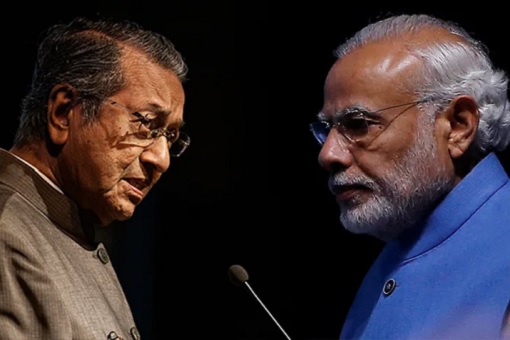
India does not need to give “anything official” to Malaysia before officially punish the country with a restriction or a total boycott of its palm oil. What they needed to do was to leak to international news media like Reuters about the Modi government’s desire to send a strong signal of its displeasure to Malaysian government over its interference in the internal affairs of India.

India does not need to give “anything official” to Malaysia before officially punish the country with a restriction or a total boycott of its palm oil. What they needed to do was to leak to international news media like Reuters about the Modi government’s desire to send a strong signal of its displeasure to Malaysian government over its interference in the internal affairs of India.
And that was precisely what the Indian government had told Reuters. Besides leaking that New Delhi was considering slashing imports of Malaysian palm oil, the “sources” had also revealed that India, the world’s biggest importer of edible oils, was planning to substitute Malaysian palm oil with supplies of edible oils from countries like Indonesia, Argentina and Ukraine.
The unofficial news also created confusion whether India is about to slap any new tariff on Malaysian palm oil. Such uncertainties have forced Indian buyers to switch to buy from Indonesia to avoid unnecessary problems due to the possible impact of higher taxes. After all, Indonesia and Malaysia are producers of palm oil and they are neighbours so there’s little problem with changes of shipping logistics.
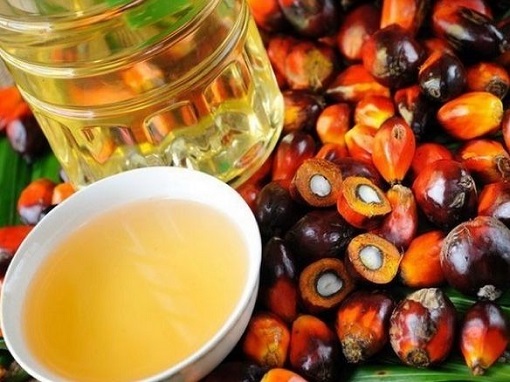
The writing is on the wall. India has started a mini trade war with Malaysia, thanks to PM Mahathir’s toxic mouth. On Sunday, Mahathir said his government will “study the impact of the action taken by India” – suggesting that he was absolutely concerned about the impact. But he said – “They are exporting goods to Malaysia too. It’s not just one-way trade, its two-way trade.”

The writing is on the wall. India has started a mini trade war with Malaysia, thanks to PM Mahathir’s toxic mouth. On Sunday, Mahathir said his government will “study the impact of the action taken by India” – suggesting that he was absolutely concerned about the impact. But he said – “They are exporting goods to Malaysia too. It’s not just one-way trade, its two-way trade.”
Yes, Mr. Mahathir knew India was about to launch a trade war against Malaysia. But there was nothing he could do except to act brave (give him a medal) – reminding India that it will lose as well in a trade war because the country also exports its goods to Malaysia. Perhaps he should stop hallucinating that Malaysia is an economic superpower like China.
Did Mahathir realize that two days ago, when Indian Prime Minister Narendra Modi and Chinese President Xi Jinping spent nearly 6 hours over fresh coconut in one-on-one meetings in the seaside town of Mamallapuram, India, both leaders maturely steered clear of thornier matters such as Kashmir and the 5G data prospects of Chinese tech giant Huawei?
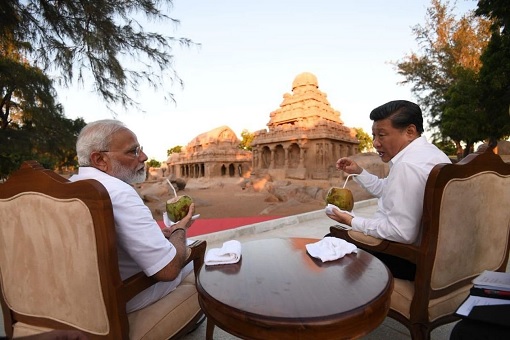
China and India, two countries that have a direct military confrontation near their disputed border in the Himalayan mountains, were wise enough not to talk about a territorial dispute during their trade talk despite India’s trade deficit of US$54 billion with China. Who is Malaysia to lecture India about Kashmir, when the small nation has a trade surplus of US$4.4 billion with the economic powerhouse?

China and India, two countries that have a direct military confrontation near their disputed border in the Himalayan mountains, were wise enough not to talk about a territorial dispute during their trade talk despite India’s trade deficit of US$54 billion with China. Who is Malaysia to lecture India about Kashmir, when the small nation has a trade surplus of US$4.4 billion with the economic powerhouse?
India is the world’s fifth biggest economy with GDP worth a staggering US$3.16 trillion, while Malaysia is ranked 11th with its GDP at US$402.61 billion. According to India’s trade ministry data, Malaysia’s exports to India stood at US$10.8 billion in the 2018/19 fiscal, while imports from New Delhi totalled US$6.4 billion – hence the US$4.4 billion surplus in favour of Malaysia.
In short, Malaysia’s total import of Indian products only constituted 0.2% of India’s GDP. However, India’s total import of Malaysian products was 2.7% of Malaysia’s GDP. This means even if Malaysia stops buying Indian products altogether, New Delhi would most likely won’t feel a pinch. Unfortunately, the same cannot be said about Malaysia.
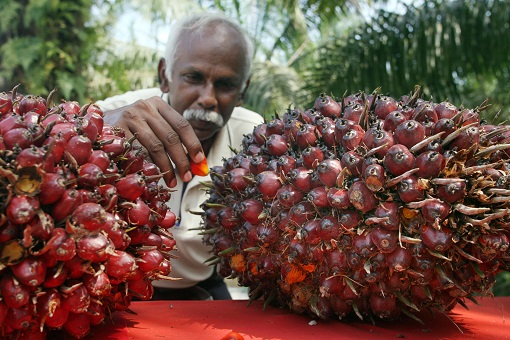
Malaysia’s palm oil exports to India in 2018 were valued at US$1.65 billion – just 0.052% of India’s GDP, but account for more than 15% of total Malaysian exports to the country. You don’t need a rocket scientist to see why a trade war should be the last thing on Mahathir’s wishlist. The country simply cannot win a trade war with India, while it’s still facing the effect of US-China trade war.

Malaysia’s palm oil exports to India in 2018 were valued at US$1.65 billion – just 0.052% of India’s GDP, but account for more than 15% of total Malaysian exports to the country. You don’t need a rocket scientist to see why a trade war should be the last thing on Mahathir’s wishlist. The country simply cannot win a trade war with India, while it’s still facing the effect of US-China trade war.
Like American soybeans being targeted by the Chinese in the US-China trade war, Malaysian palm oil is Mahathir’s Achilles Heel which could be targeted by the Indian government. And like American farmers, the Felda settlers who happen to be almost 100% ethnic Malays are the vote bank of Mahathir’s Malay-based political party – PPBM (Bersatu).
Lower purchases by India, the biggest buyer of Malaysian palm oil in 2019, could lead to higher inventories and put pressure on Malaysian palm oil prices, which in turn would make 110,000 “unhappy” FELDA settlers and their children against Mahathir government. And it appears that Mahathir has just blinked in the poker game.

After the news broke that Indian refiners are avoiding Malaysia like a plague, Primary Industries Minister Teresa Kok was sent to do damage control, saying Malaysia is exploring the possibility of buying raw sugar from India starting next year to enhance bilateral trade with the country. Buffalo meat from India is also on the menu to reduce the trade imbalance.

After the news broke that Indian refiners are avoiding Malaysia like a plague, Primary Industries Minister Teresa Kok was sent to do damage control, saying Malaysia is exploring the possibility of buying raw sugar from India starting next year to enhance bilateral trade with the country. Buffalo meat from India is also on the menu to reduce the trade imbalance.
Obviously, Mahathir administration is sucking up to India, offering to buy more sugar and buffalo to pacify Modi government. But such a trick had been used by Indonesia. Jakarta was willing to open up its market access for raw sugar from India (Indonesia imports raw sugar from Thailand and Australia) if India cut its tariff on palm oil to match the levy faced by rival producer Malaysia.
As a result, India reportedly has agreed to reduce import duties of Indonesian processed palm oil to 45%, similar to the rate imposed on Malaysia. The burning question is the real objective of New Delhi in cutting the import of not only palm oil, but also other products from Malaysia. Was Modi trying to correct the trade imbalance between both countries in the first place?
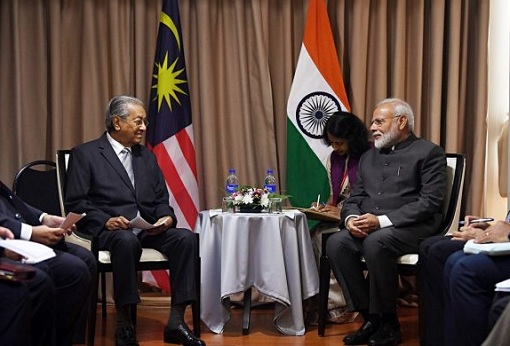
What is there to stop India from fully dropping Malaysia as a supplier of palm oil and substitute it with Indonesian palm oil – just to teach Mahathir a lesson? Surely Jakarta would be more than happy to buy more sugar from New Delhi to capture the market share in the region. India is the largest importer of Malaysia’s palm oil, followed by China and Pakistan.

What is there to stop India from fully dropping Malaysia as a supplier of palm oil and substitute it with Indonesian palm oil – just to teach Mahathir a lesson? Surely Jakarta would be more than happy to buy more sugar from New Delhi to capture the market share in the region. India is the largest importer of Malaysia’s palm oil, followed by China and Pakistan.
Can Mahathir convince China (imported 1.61 million tonnes) and Pakistan (imported 821,591 tonnes) to absorb the 3.9 million tonnes of palm oil if India decides to go full-blown into a trade war with Malaysia? The 94-year-old premier can scream all he likes about no winner if a trade war erupts. But Malaysia is neither China nor has a huge trade deficit with India that it could use as bullets in negotiations.
Teresa Kok should tell her boss that it would take more than sugar and buffalo to fix the problem caused by the stubborn and defiant prime minister. Exactly how much sugar or buffalo meat that Malaysia can consume? Early of this year, Malaysia agreed to buy 44,000 tonnes of sugar from India after import duty on crude and refined palm oil were cut.

That was before Mahathir offended India with his remarks about Kashmir being invaded by India. Now, things have gotten quite personal. India wanted to send a strong signal of its displeasure. As a start, perhaps Mahathir could start exporting Zakir Naik back to India to ensure New Delhi would not stop importing Malaysian palm oil while both parties negotiate.

That was before Mahathir offended India with his remarks about Kashmir being invaded by India. Now, things have gotten quite personal. India wanted to send a strong signal of its displeasure. As a start, perhaps Mahathir could start exporting Zakir Naik back to India to ensure New Delhi would not stop importing Malaysian palm oil while both parties negotiate.

I don't think buying raw sugar and buffalo meat from India was Toonsie's idea. It was Tiger Teresa's. She is trying to make a peace offering to India.
ReplyDeleteAs usual DAP ministers have to do fire-fighting and clean up after a stream of blunders by (mostly) Bersatu ministers, this time it is Toonsie himself, after his stubborn refusal to extradite Zakar Naik then with his insensitive remark at the UNGA over Kashmir.
Time to go Toonsie. Your brand of politics is so 70-ish. You criticise Trump over the US trade war with China but you are causing the same between Indian and Malaysia.
I havent read ur posting yet. Why so long menghilang aa. 1st oct till now baru muncul. What happen aa
ReplyDeleteterima kasih - have to work lah, wakakaka
DeleteAll this is to get the support of the Malays and muslim here...Looks like he is going to hang on to the PM till GE15 so he need all the support. If he hand them over to AI then Mukhriz political future gone.
ReplyDelete